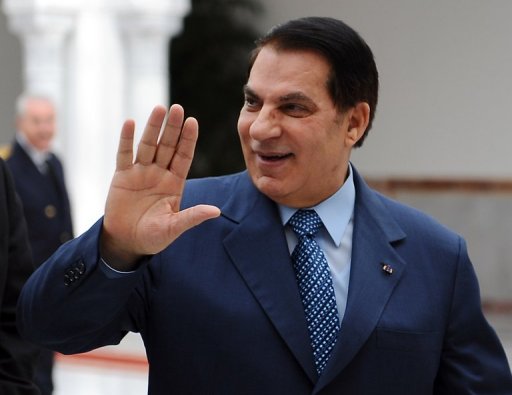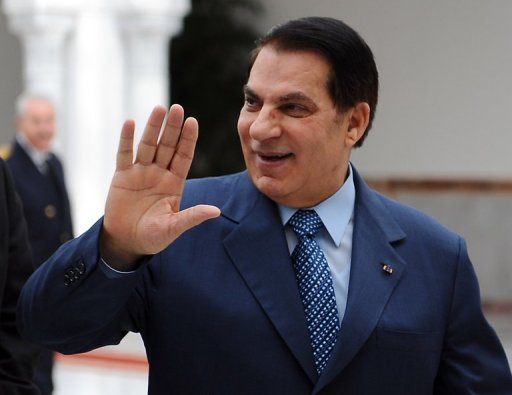Tunisia begins trial of ousted president
 Tunisia began on Monday the trial of former president Zine al-Abdine Ben Ali, whose ouster by protesters angry over corruption and police repression inspired the "Arab Spring" that has swept the region.
Tunisia began on Monday the trial of former president Zine al-Abdine Ben Ali, whose ouster by protesters angry over corruption and police repression inspired the "Arab Spring" that has swept the region.
The former strongman, who went on trial in his absence, faces charges related to theft, drugs and weapons offences. He could be jailed for up to 20 years if found guilty.
Ben Ali fled to Saudi Arabia on January 14, after mass protests against 23 years of rule in which he, his wife and their family built stakes in the country's biggest businesses and accumulated vast fortunes at what Tunisians say was their expense.
Judge Touhami Hafian, sitting in the Palace of Justice in the Tunisian capital, said the court would begin by hearing charges that Ben Ali was in unlawful possession of foreign currency, jewelry, archeological artefacts, drugs and weapons. "This is a normal trial," the judge said.
Speaking to Reuters before the hearing began, Husni Beji, one of five lawyers representing Ben Ali, told Reuters: "We are going to ask for an adjournment ... I want to convince Ben Ali to attend the trial."
In a statement released by his lawyers on Sunday, the 74-year-old Ben Ali denied the charges against him. He said the prosecution was an attempt by Tunisia's new leaders to distract attention from their failure to restore stability in the six months since he left the country.
The toppled president also said that he was duped into leaving his country and insisted he had not abandoned his post. "I did not abandon my post as president nor did I flee Tunisia, as some media have falsely reported," he said in the statement.
Ben Ali said he had been advised by his security chief Ali Al-Soryati to leave Tunisia on January 14 because of fears of an assassination plot. He said he had bundled his family onto a plane which took them to Saudi Arabia and had explicitly instructed the pilot to wait for him at Jeddah airport. "But after arriving in Jeddah the plane turned around and headed back to Tunis, disobeying my instructions," he said.
More than 30 members of Ben Ali's family and that of his wife, Leila Trabelsi, were arrested in the days following the fall of his regime. Some have since been charged with economic crimes and abuse of power.
Ben Ali and his family built up interests in many Tunisian companies and industries during his two decades in power, including in hotels, banks, tuna exports, construction, newspapers and pharmaceuticals.
